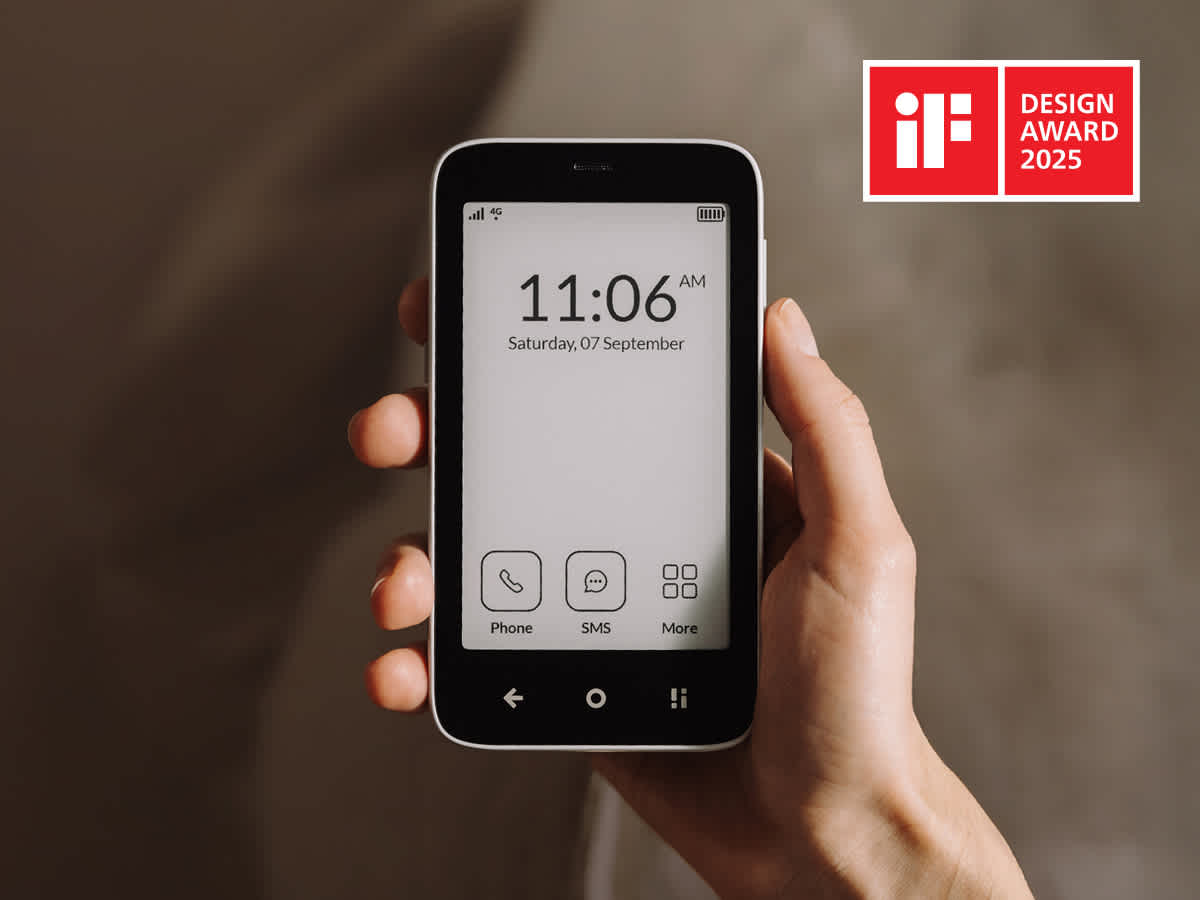Apple to Australians: You’re Too Stupid to Choose Your Own Apps
-
Just because you aren’t aware of it, it doesn’t mean it’s not happening already.
BTW, this only happens (usually!!) if you install from the web, which.. like, if you don't have the tech literacy to figure out what's fake or not (especially banking?? Any reasonable bank HAS an app in official platforms, like the play store) then you don't need and shouldn't sideload, BUT the option is there for people like me, who use F-Droid and other FOSS-related apps.
The only downside is that unless people literally ignore warnings from the system for downloading apps (maybe first time stuff, then either the warning design sucks, or again, user error) then maybe just maybe they should read, if it's not official play store.
-
Apple has always said this about their users. Too stupid to allow choices outside of a few curated options.
Yeah, it's a messed up position. It's made more complicated by then being half right. People do often like having fewer choices. Making a streamlined OS that doesn't allow them access to the kernel or crucial components, that they literally can't break by accident, that is indeed an appealing feature to many. But it's not appealing because they're stupid, it's appealing they're rational.
This has always been Apple's method, make everything intuitive, easy to use for anyone and their mother. And a big part of that is removing all the extra clutter from the interface, all the options users would rarely if ever use. This is also the contentious part, removing the advanced options that power users might want access to.
But at least initially, they understood that the reason for doing all this, their goal, was to make their products better. These days it seems like they're less clear on that goal. The idea that they're "dumbing down" their products and controlling everything because their users are too stupid, this is a new attitude, and it shows a misunderstanding of the principals their company was built on. Apple was only successful because they made very good products which were comfortable to use. They certainly never won popularity through competitive pricing or having the most powerful machines...
Personally, I think it's a foolish move to be this controlling over their iOS ecosystem. This is really making the product inferior. Sideloading apps will not destroy their walled garden, it just gives power users the options they want. Apple should be afraid of losing more market share, they don't have all that much to lose...
-
Just because you aren’t aware of it, it doesn’t mean it’s not happening already.
I was talking about the point you made in your first paragraph. Where businesses would suddenly start providing their apps only in third party stores.
-
some of them can barely operate at light switches
Here's a short story for this fact.
I have sold coffee machine on Monday. Next day got a message that it doesn't work. I ask what is up with it and she told me it won't start. I asked if she turned switch in the back in ON position? 1h later she writes me that it works!
I mean yeah, there is a switch in the back and a big ass ON button on the front. But I totally think that basic troubleshooting would solve this enigma before shooting the gun at me for selling a faulty device.
We used to have a poster up at work in the IT room that had a picture of a person scratching their heads and looking blankly at their laptop and the text "I've tried nothing, and I'm all out of ideas".
Some people have zero troubleshooting skills and don't even try. Their immediate reaction is to try and make it someone else's problem.
-
I was talking about the point you made in your first paragraph. Where businesses would suddenly start providing their apps only in third party stores.
Well you weren’t very specific, so I wasn’t sure which point(s) you were disagreeing with.
I’m sure there are a number of apps which were only available on one storefront (Google, Samsung, F-Droid etc.).
China is in an even worse spot, as Google is outright banned - there are a dozen or so competing Android app stores; however their saving grace is that literally every digital transaction goes through either Weixin or AliPay - so there’s a somewhat lessened risk of credit card fraud.
Why would smaller, niche apps move to alternative stores on iOS? To (rightfully) avoid the excessive fees charged - so yes, a restaurant would be a prime example of someone not be willing / able to give 30% to Apple (nor should they, it’s downright extortion).
-
I respectfully disagree.
If I’m out at a restaurant with app-based ordering, or my Real Estate agent requires payment through their gateway, or to track my utilities usage, or am required to use any other number of niche apps that become only available through alternate app stores? Then I very well risk being put in a situation where I am otherwise forced to.
Let alone the headaches that will inevitably come from the older, less technologically savvy, and more vulnerable having their default app stores highjacked, and spoof apps stealing their credentials/credit cards.
Then we get into the more general issues of allowing unsigned code to be loaded and run on our smartphones - it will lead to the era of viruses, Trojans and ransomware.
I am reminded of this piece that Last Week Tonight did on Encryption, which is quite cogent given the topic at hand.
Best security practices involve minimising the number of places your sensitive (financial) data is stored. If a website doesn’t accept a known and reputable intermediary like Apple Pay, PayPal or a BNPL provider - I would refrain from using it.
If this is something that you want - then go ahead and Jailbreak your iPhone, or get an Android - more power to you; but please stop trying to enshittify iOS.
Again, I can understand where you come from, but it's been proven, time and again, that using apps from the main app store (ios or Android, doesn't matter) is not inherently safer or more dangerous than getting apps from other stores. The problems are the apps not the stores. Additionally, I have yet to see any company, institution or organization publish apps exclusively in alternative app stores,which means that, as far as I'm aware, every app "needed" will be in the platforms own store, which means that nobody has to get an alternative app store if they don't want to.
These facts render your arguments to block giving owners of devices options completely invalid.
Yes, if you feel safer with the platforms' default stores, you're free to remain there and avoid anything else, as this is your device, and therefore your choice. But these arguments you bring take away CHOICE for absolutely no good reason.
-
BTW, this only happens (usually!!) if you install from the web, which.. like, if you don't have the tech literacy to figure out what's fake or not (especially banking?? Any reasonable bank HAS an app in official platforms, like the play store) then you don't need and shouldn't sideload, BUT the option is there for people like me, who use F-Droid and other FOSS-related apps.
The only downside is that unless people literally ignore warnings from the system for downloading apps (maybe first time stuff, then either the warning design sucks, or again, user error) then maybe just maybe they should read, if it's not official play store.
But this also happens in the official stores as well. While it does happen less in ios than in android, the fact remains that it happens in official stores ss much as I alternative stores, which makes this argument irrelevant at best.
-
Again, I can understand where you come from, but it's been proven, time and again, that using apps from the main app store (ios or Android, doesn't matter) is not inherently safer or more dangerous than getting apps from other stores. The problems are the apps not the stores. Additionally, I have yet to see any company, institution or organization publish apps exclusively in alternative app stores,which means that, as far as I'm aware, every app "needed" will be in the platforms own store, which means that nobody has to get an alternative app store if they don't want to.
These facts render your arguments to block giving owners of devices options completely invalid.
Yes, if you feel safer with the platforms' default stores, you're free to remain there and avoid anything else, as this is your device, and therefore your choice. But these arguments you bring take away CHOICE for absolutely no good reason.
How has it been “proven” that all app stores are equally safe?
Heck, just comparing Google Play and Apple App Store - every article over the past year covering malicious apps (including the recent cross-platform SparkCat) mentions at some point or another that these occurrences are significantly rarer on iOS given Apple’s stricter policies and guidelines. Policies that could not otherwise be enforced on 3rd party app stores.
Realistically, no one who purchases an iPhone is doing so under the assumption that they aren’t going to be within the wider Apple ecosystem and ‘walled garden’. Those that do want that additional freedom, and associated risks, have Android and other FOSS options available to them already.
Think of it this way: There are plenty of Android-based devices that are faster, better or have unique features that iOS doesn’t; Apple’s USP is iOS. We were ‘free’ to choose this ecosystem, and by trying to impose your own definition of freedom onto us, you are instead depriving us of our own.
If you choose not to see the inherent risks associated with this, so be it - but I am wary enough to know that if/once the genie is out of the bottle, there is no ability to go back when the shit inevitably hits the fan.
Don’t think of me as a blind Apple fanboy, either: I think there are plenty of valid criticisms of Apple’s handling of the App Store that legislation would be much better suited to targeting - namely their egregious fees and arbitrary policies regarding directing users to their own websites for alternate payment methods.****
-
How has it been “proven” that all app stores are equally safe?
Heck, just comparing Google Play and Apple App Store - every article over the past year covering malicious apps (including the recent cross-platform SparkCat) mentions at some point or another that these occurrences are significantly rarer on iOS given Apple’s stricter policies and guidelines. Policies that could not otherwise be enforced on 3rd party app stores.
Realistically, no one who purchases an iPhone is doing so under the assumption that they aren’t going to be within the wider Apple ecosystem and ‘walled garden’. Those that do want that additional freedom, and associated risks, have Android and other FOSS options available to them already.
Think of it this way: There are plenty of Android-based devices that are faster, better or have unique features that iOS doesn’t; Apple’s USP is iOS. We were ‘free’ to choose this ecosystem, and by trying to impose your own definition of freedom onto us, you are instead depriving us of our own.
If you choose not to see the inherent risks associated with this, so be it - but I am wary enough to know that if/once the genie is out of the bottle, there is no ability to go back when the shit inevitably hits the fan.
Don’t think of me as a blind Apple fanboy, either: I think there are plenty of valid criticisms of Apple’s handling of the App Store that legislation would be much better suited to targeting - namely their egregious fees and arbitrary policies regarding directing users to their own websites for alternate payment methods.****
Wao, did you not read what I said? No app store is inherently safer or more dangerous than any other. They all require some level of trust, plus trust in the devs of the apps available on each store.
About freedom, nobody is taking anything away from you, other than Apple. Again, if you want to remain in their ecosystem exclusively, nobody is going to force you to use alternative app stores. However, your argument does go entirely against choice, the same choice you claim I am soiling with my comments.
We do agree on 1 thing, when someone buys an Apple product, there's a very good chance that they want that walled garden. Then there's those that did not buy from Apple, but had no option other than an iPhone, some of those I can guarantee that they hate being controlled by the company that manufactured what is supposed to be theirs.
If you can't do everything you want with what you bought and paid for, is it really yours?
I suggest that you look at the current status of technology in the world right now. You do not own your iPhone, iPad, or Mac. Same with most Android devices and Windows computers. They force shit into the users, to the point that you will lose functionality if you were to disable most of what's in the devices.
Sure, Android is a bit more flexible, but other than GrapheneOS, CalyxOS or LineageOS, it's the same crap as iPhone, locking you to have apps forcibly, whether you like or use them or not. The only difference is that in Android you do have the ability to use other stores.
Enjoy your locked iPhone, and let those who want more choice just have the choice.
-
This post did not contain any content.
EFF has been fighting the good fight for decades. I signed up for their newsletter in the 90s when I was a teen and still didn't understand enough about the world to be confident that I properly understood what they stood for, concerned that I might have picked the wrong side. I occasionally check their job listings. But they need lawyers and legal experts and I'm trying to run their IT infrastructure. At some point, if I check enough times, maybe they'll need the skills I have. I'd drop any job to work for them.
-
This post did not contain any content.
We are, it's near ubiquitous. I'd suggest as high as 80% of us. Those folks will still use anything but the store anyway.
Being generous, most people are overwhelmed with choice .... in matters of no inportant (walk down the ceral aisle) , it's just with matters of importance they are given little choice.
That said I use Android becase I can sideload, some 50+60% of the apps I use regularly are sideloaded, stand out that aren't are banking and government. To have that taken off me would be shitty.
That said, I'm bemused at people that complain of a wall garden but also enable it to occur by being part of sipping at the kool aid.
My biggest gripe though is governemnt doing it, using Windows, MS Office etc etc and communicating using closed protocols. Maube like Demark and Germany we'll also move off that toxic shit.
-
No no no apple knows whats best because they made it. did you make a phone? no? didnt think so. checkmate.
(Pay no attention to the fact that it took apple 14 years to add t9 dialing, one of the simplest features a 'dumb' phone could have.)
I was always surprised by that (t9 dialing). Surely there was some legal reason for that. It felt so - primative.




